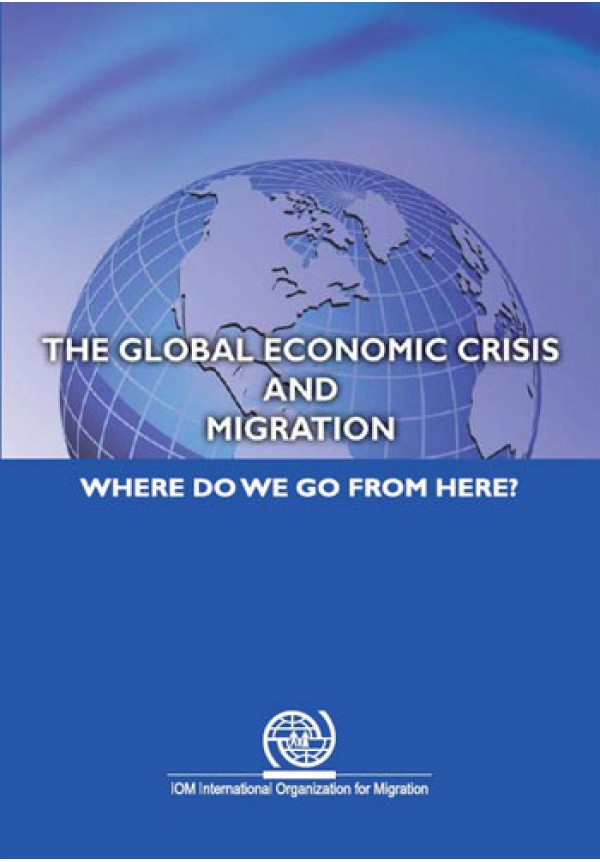
08 oct 2015
The Global Economic Crisis and Migration
Bimal Ghosh’s new book, jointly sponsored by the International Organization for Migration (IOM) and The Hague Process on Refugees and Migration (THP), provides a detailed analysis of the economic decline and its links to joblessness and incomes, poverty and inequality, and changes in the labour force worldwide. It then spells out how these developments and governments’ reaction to them have been affecting migration patterns and policies in both origin and destination countries. This is followed by an assessment of their consequences – many of which, the author points out, remain wearisome for destination and origin countries, as well as for the world society.
However, none of these pitfalls is inevitable, says Professor Ghosh. He puts forward a set of well-articulated policy and practical measures that can help avoid or minimize them. These include: flexible immigration policies congruent with current and anticipated labour needs; avoidance of populist, inward-looking policies, including trade protectionism; proactive labour market measures and aid for economic diversification of remittance-dependent poor countries. Special importance is attached to job creation, measures against abuse of migrants’ human and labour rights and their more effective social and labour market integration.
Bimal Ghosh ends the book by urging nations to turn the present crisis into a new opportunity by developing an agreed multilateral framework of cooperation to make human mobility more orderly and predictable. Looking at the future, Professor Ghosh expects an increase in South–South migration and a gradual lessening of tension in South–North flows, and a more diversified pattern of world migration. The pre-existence of a sound multilateral framework of cooperation to deal with current recession-related migration issues can make it possible for nations to meet the future challenges of human movement with greater confidence. Now is the time to get engaged, he says.
Read More
- List of figures and tables
- Acronyms and abbreviations
- Foreword by IOM Director General, William Lacy Swing and United Nations Special Representative on Migration and Development, Peter Sutherland
- Preface
- 1. The crisis and its distinctive features: How different is it from its predecessors?
- 2. The crisis and its impact on the pattern of migration: Changing trends in flows and stocks
- 3. Effects of changes in the migration pattern: Discerning perils and pitfalls
- 4. Meeting the challenge: The response
- 5. Where do we go from here?
- References
- Annexes